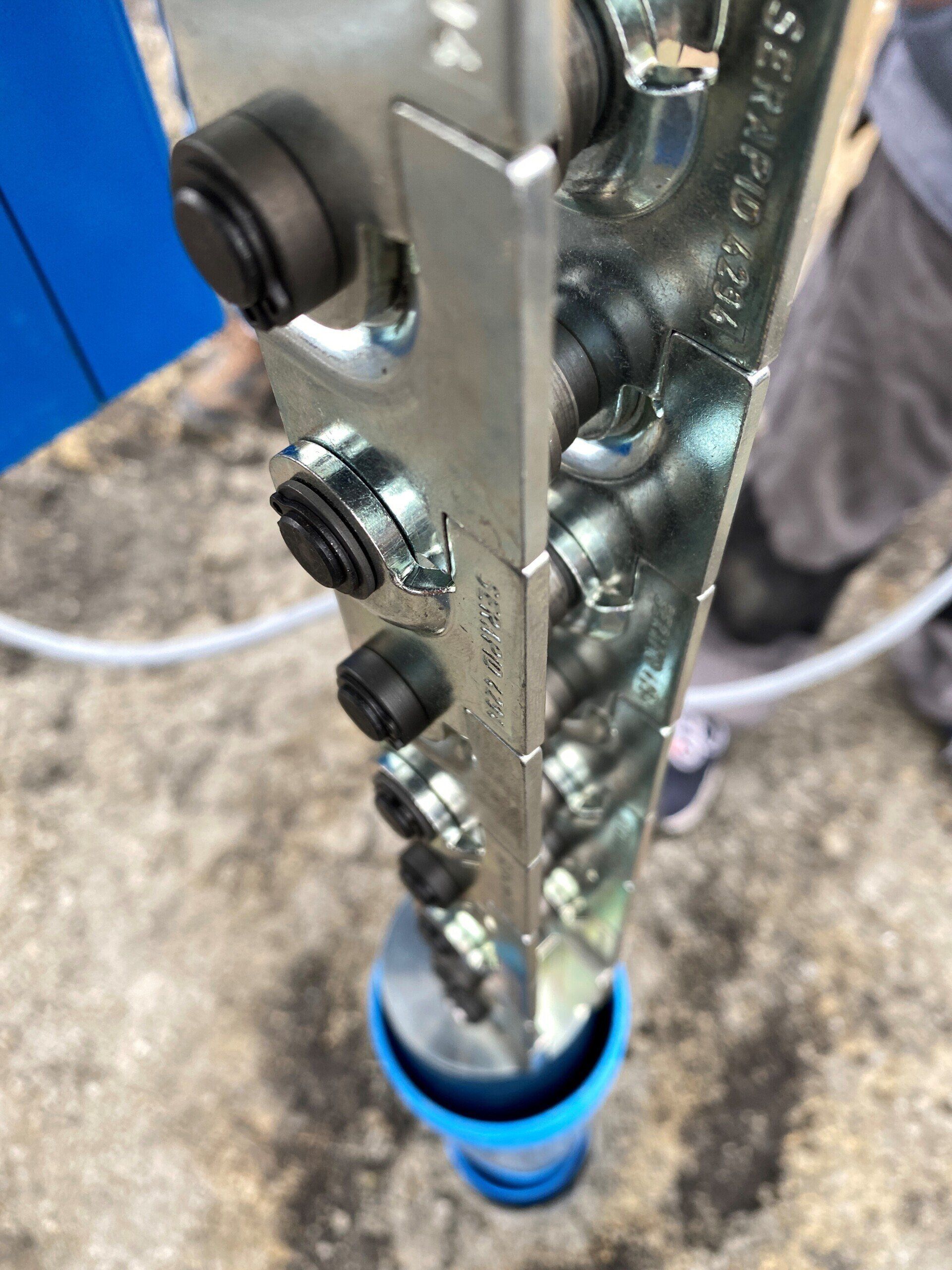The BOROPLAST process:
Ideal borehole filling
in ordnance detection
We are your system provider for the ideal borehole filling
Safety and Integrity of Borehole Filling
Patented groundwater protection
Many borehole fillings consist of dumped materials. They create a hydraulic connection from the surface water directly into the groundwater. With serious consequences for groundwater, which is a food source.
We invented, developed, tested, patented and brought the mechanical layer-by-layer compaction to series production. For the absolute hydraulic seal.
We protect groundwater.
Patented protection against sagging
Many borehole fillings are subject to compaction and sinking, with serious consequences for safety.
We invented high-density borehole filling, we supply the process, the machines and the building material for it. For the safest borehole filling of all time.
We deliver security.
CO2 free from responsibility
Some borehole fillings generate huge amounts of CO2. 800 t CO2 per 1 km of road construction is an avoidable environmental burden.
We have made safe, void-free, cyclically dynamically resilient and yet climate-friendly borehole filling ready for series production. This is the most responsible borehole filling there is.
We deliver a clear conscience.
FILLING
We are system providers for the ideal borehole filling
2025
The best resolutions for 2025
BASICS
Technical planning and execution
Water law-compliant
The BOROPLAST(R) process is approved by the Hamburg Environmental Authority BUKEA. As part of the approval test, BUKEA has critically examined the environmental safety in particular.
approval by KMBD
The BOROPLAST(R) process is technically recognized and approved by the Central Service of the Police of the State of Brandenburg - Explosive Ordnance Disposal Service (KMBD).
BFR-KMR 2024
state-of-the-art process
The BFR-KMR 2024 provides precise specifications for the compaction of KaMiSo boreholes for proper backfilling. Backfilling in layers, homogeneous mixing with hydrogel, compacted backfilling up to the GOK and documentation of the backfilling is state of the art.
DIN borehole filling
working group
In order to improve working methods, technical procedures and ground safety, a working group is being formed to create a DIN standard for "borehole filling".
Choose the process that will dramatically reduce CO2 emissions.
A conscious decision for the right procedure reduces the release of CO2 by around 700-800 tonnes of CO2 per km of KaMiSo in track construction or track rehabilitation
15.000
KaMiSo drillings per 1 km of railway construction with full exploration
3.750
cbm drilled volume per 1 km KaMiSo in railway construction
250
Liters of volume per borehole are backfilled in the KaMiSo
700-800
Tonnes of CO2 per 1 km of KaMiSo in railway construction can be avoided
Our drive
There are still around 200,000 World War II bombs in the ground of our transport infrastructure that can still explode. This means that we still have 200 million holes to drill. We will ensure that they are properly filled.
Patented processes
We invented, developed, tested and patented the Boroplast process. The process for layer-by-layer compaction of elastoplastic building materials in the borehole.
state-of-the-art technology
We supply the most modern technology for producing the ideal borehole filling. The most modern, environmentally friendly building material, the most modern machine technology, the most modern process.
So that you can sleep peacefully
Our Boroplast process protects you from claims for compensation. No major damage due to unstable building ground, subsiding traffic structures or subsiding drilling fillings. A Boroplast filling does not give way.
BOROPLAST process: void-free, non-sagging compaction of boreholes








